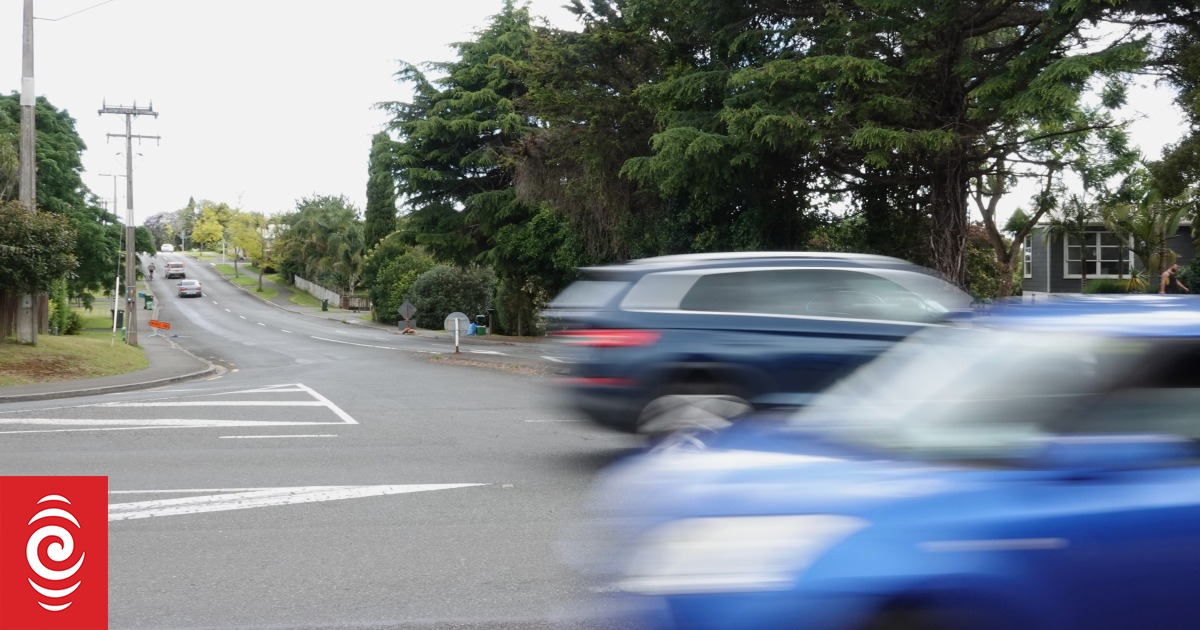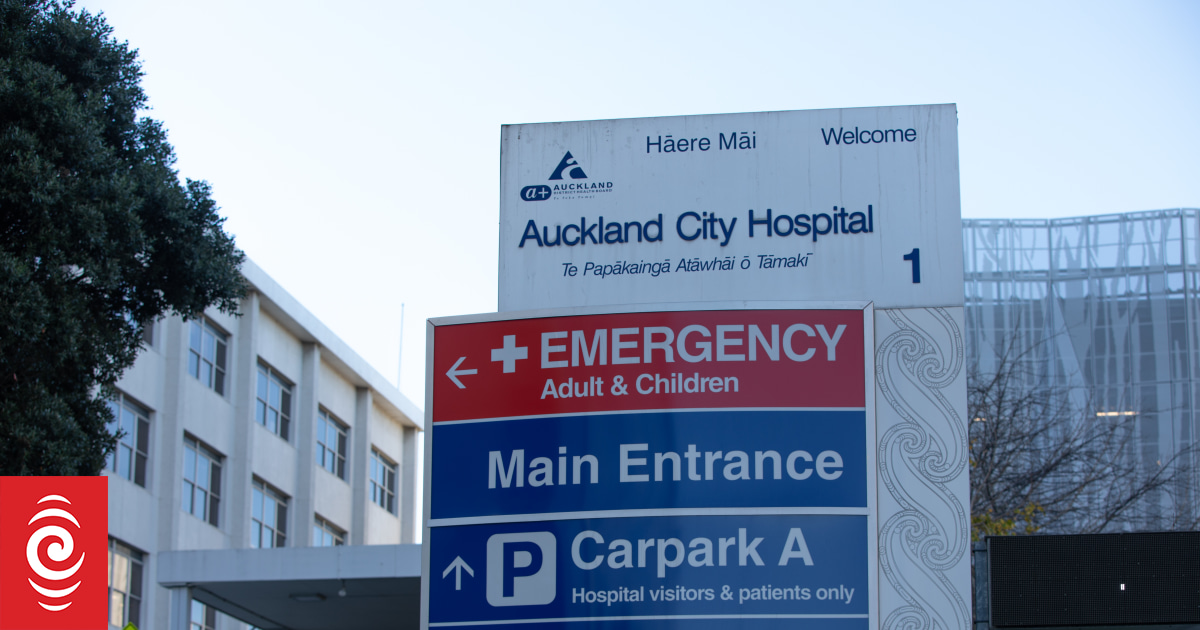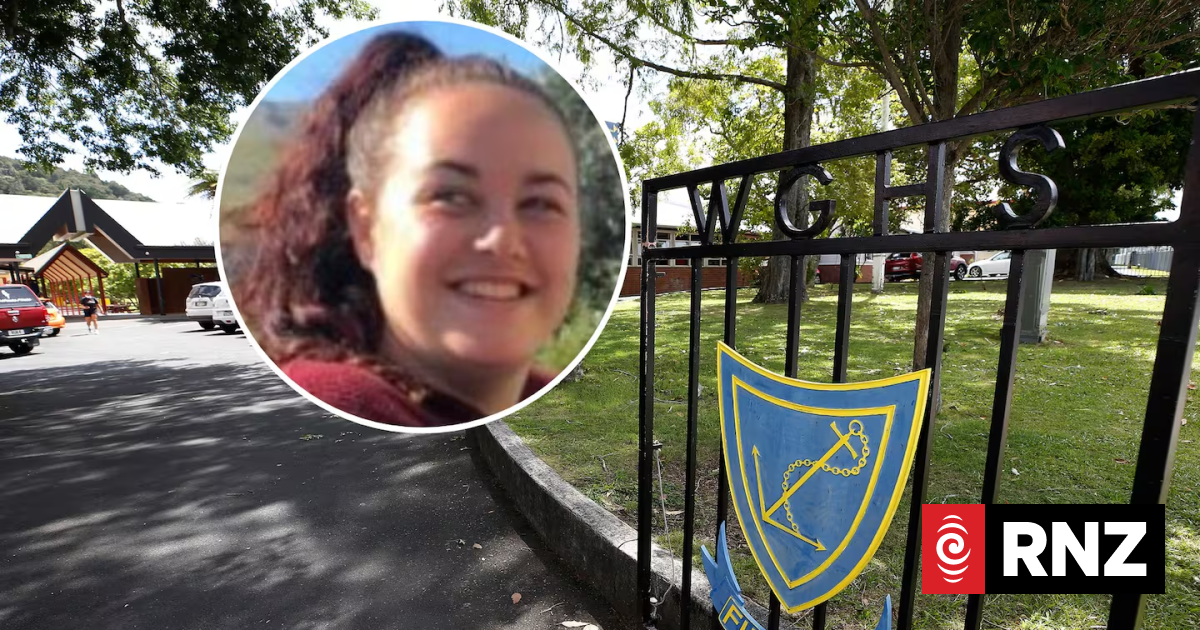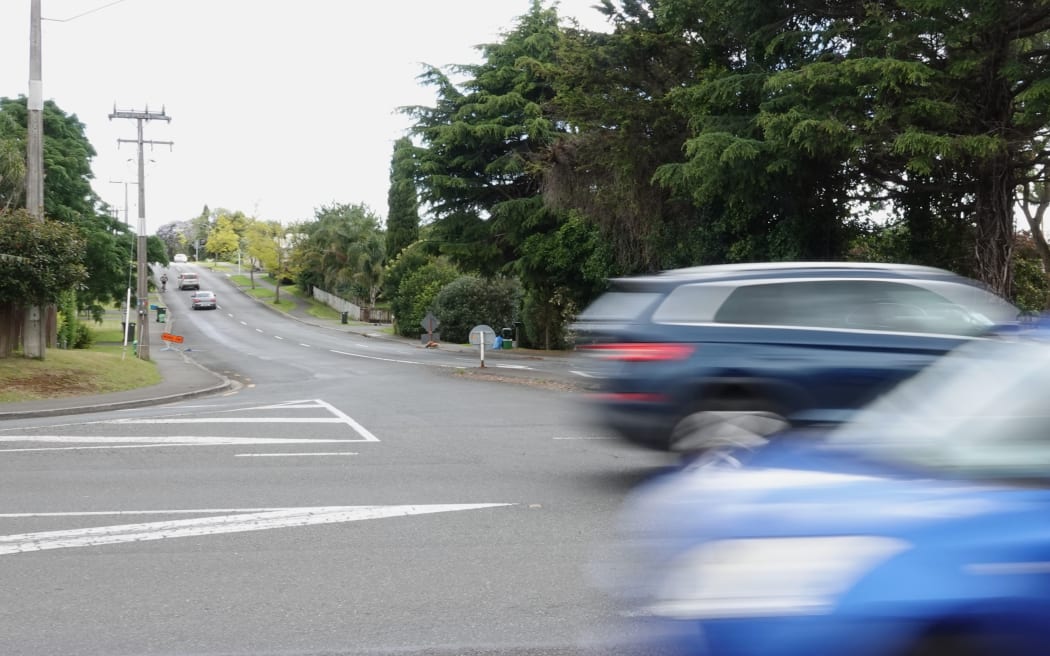
The cancelled Transport Choices plan was to have included improvements to the Hone Heke Road-Cobham Road intersection, near Kerikeri’s two biggest schools.
Photo: RNZ / Peter de Graaf
Community leaders in the Bay of Islands say they are devastated the new government has cancelled a project designed to improve road safety for children heading to school in Kerikeri.
The Transport Choices plan included a roundabout and pedestrian crossings at a busy intersection near Kerikeri’s primary and high schools, as well as widened footpaths, bike paths and raised crossing platforms to slow traffic.
More than 2000 students attend two schools on Hone Heke Road, which also has a kindergarten, two early childhood centres and a kohanga reo.
Transport Minister Simeon Brown wrote to councils around the country before Christmas informing them any Transport Choices plans put on hold by the new government in October would not receive any more funding, and would therefore not proceed.
Plans that had already received a final sign-off from the NZ Transport Agency could go ahead.
Far North District councillor Ann Court, who holds the transport portfolio, said she was “absolutely gutted”.
She said the plan would have delivered critical infrastructure to make getting around town safe and convenient for thousands of people – especially students, the elderly and anyone with limited mobility.
The improvements were vital in a town like Kerikeri which had no public transport, she said.
“So to have the funding pulled like that after we had been approved at every stage, that’s just devastating,” Court said.
“An awful lot of effort has gone into this. It involved extensive public consultation, engagement with students, particularly from Kerikeri High School, public drop-in sessions and a lot of public feedback, so a lot of effort went in from a lot of people into coming up with that plan.”
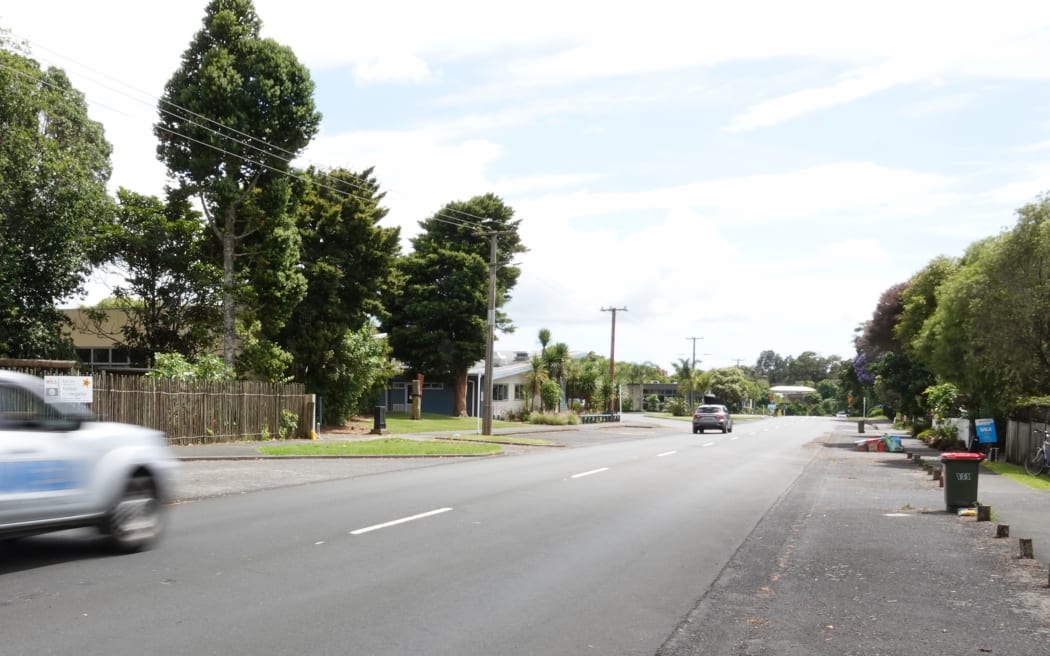
More than 2000 students attend schools on Hone Heke Road in Kerikeri, which is also home to a kindergarten, two early childhood centres and a kohanga reo.
Photo: RNZ / Peter de Graaf
Much of Kerikeri’s congestion occurred at the start and end of the school day, because many parents opted to drive their children to and from school.
One of the reasons was because parents felt it was not safe for their children to walk or ride a bike.
Court said cancelling the Transport Choices plan would do nothing to reduce the number of cars on the road in Kerikeri, but it would add to congestion, emissions and safety challenges on Hone Heke Road.
Getting people out of cars also brought health benefits, she said.
It was not just students Court was concerned about – with a retirement village building boom in Kerikeri, increasing numbers of elderly residents relied on mobility scooters.
The town’s narrow, patched-up footpaths were also unsuitable for the disabled, she said.
Transport Minister Simeon Brown, however, told RNZ the Transport Choices programme did not meet the aims of the new government.
“My focus is on delivering a safe, efficient and well-maintained transport network that will help Kiwis get where they need to go, quickly and safely. Transport Choices didn’t fit within these priorities,” he said.
Brown said the coalition was working on a new Government Policy Statement on land transport that would reflect its priorities, but did not respond to a question about whether the views of communities such as Kerikeri were considered before funding was terminated.
Annika Dickey, chairwoman of community group Our Kerikeri, said the need for improved road safety for pedestrians and cyclists was one of the main themes that came out of the group’s first public meeting, attended by more than 300 people in 2019.
The cancelled project was focused on school students in particular.
It would have allowed children to walk or cycle independently, reducing the number of cars on the road at drop-off and pick-up times.
If any part of the journey to school was unsafe, parents would not allow it, she said.
“This was just the start of something bigger and we were excited about seeing it happen. We’re really gutted it’s been cancelled. We understand the new government’s need to focus on roads, but there’s got to be a balance.”
Given the Far North’s geographical spread and small population, such projects would take many years to achieve if they had to be funded by rates alone, Dickey said.
The now-cancelled Kerikeri plan included a roundabout and pedestrian crossings at the congested Hone Heke Road-Cobham Road intersection, as well as widened and repaired footpaths, raised “safety platforms” to slow traffic, and an on-road bike lane for children riding to school on Hone Heke Road.
Also part of the plan were cycle safety improvements on Kerikeri Road between Hone Heke Road and the Stone Store; a shared path along Wairoa Stream so children could ride to school from residential areas on Charlotte Kemp Drive and Hall Road without using busy streets; and safety improvements on Fairway Drive and Golfview Road.
When Northland’s share of Transport Choices funding was announced last year, the Far North District Council was allocated $3 million. Of that, $1.2m had been earmarked for Kerikeri safety improvements.
The amounts allocated to the Whangārei and Kaipara district councils were $14m and $8m, respectively.
Whangārei’s Transport Choices programme, which includes completing the Kamo and Raumanga shared paths and creating a bus priority lane on Maunu Road, will go ahead.
Far North councillors were told that was due to Whangārei’s projects being signed off a few days earlier.
The Kaipara District Council did not respond to a query about whether its plans for cycleways and shared paths were going ahead.
Transport Choices plans around the country had been funded from the previous government’s Climate Emergency Response Fund.

